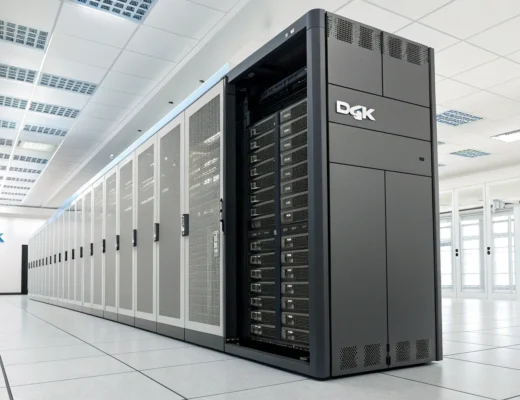Futurist Michael Tchong has forecasted that artificial intelligence will secure an increasingly prominent role in high-level corporate management as companies face mounting pressure to enhance operational efficiency.
According to Tchong, the push for streamlined business processes and improved productivity metrics is driving C-suite executives to embrace AI technologies more rapidly than previously anticipated. This shift represents a significant evolution in how major corporations approach strategic planning and resource allocation.
The Efficiency Imperative
The primary factor behind this projected AI adoption surge is what Tchong identifies as an intensifying demand for organizational efficiency. As businesses navigate economic uncertainties and competitive pressures, executive teams are turning to AI solutions that can analyze vast datasets, identify operational bottlenecks, and recommend optimization strategies.
“The need to optimize efficiency will push AI further into executive decision-making processes,” Tchong notes, suggesting that artificial intelligence will move beyond its current supporting role to become a central component of strategic planning at the highest corporate levels.
This trend aligns with broader industry movements toward data-driven management and automated business intelligence systems that can process information at scales beyond human capability.
Changing Role of Executive Leadership
The increasing integration of AI into C-suite functions may fundamentally alter how executive teams operate. Traditional leadership roles could evolve as AI systems take on more analytical and predictive responsibilities, allowing human executives to focus on areas requiring emotional intelligence, creative thinking, and relationship management.
Tchong’s prediction suggests several key changes to executive functions:
- Strategic planning increasingly informed by AI-generated insights and forecasts
- Resource allocation decisions guided by algorithmic optimization
- Performance monitoring systems that provide real-time feedback on efficiency metrics
- Risk assessment frameworks enhanced by predictive AI capabilities
These developments could reshape executive skill requirements, with greater emphasis placed on the ability to effectively collaborate with and interpret AI-generated recommendations.
Industry Implications
The forecasted AI expansion in executive decision-making carries significant implications across various sectors. Financial services, manufacturing, healthcare, and retail industries are likely to experience the earliest and most substantial impacts as they already maintain extensive data infrastructure that can support advanced AI applications.
For technology providers, this trend signals growing market opportunities in developing specialized AI solutions tailored to C-suite requirements. Companies offering executive-focused AI tools that address efficiency optimization while maintaining appropriate human oversight may find increasing demand for their services.
Corporate governance experts have noted that this shift will also necessitate new frameworks for accountability and transparency as AI systems take on greater responsibility in organizational decision-making processes.
As Tchong’s prediction begins to materialize across industries, companies that successfully integrate AI into their executive functions while maintaining clear human accountability may gain significant competitive advantages through enhanced operational efficiency and more responsive strategic planning.







